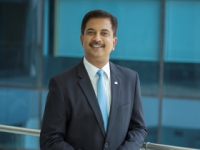Your fund house has witnessed over 50% AUM growth in FY 19. What led to this growth?
Over the last 10 years, we have kept fund management as the core of our business. We have delivered strong numbers in terms of performance and many advisors believed us in this journey. Another thing that has contributed to the growth is our focus on dealing with simple products. We have only done what we could do.
How do you plan to sustain this growth?
It is difficult to control the changing business dynamics due to market competition and regulatory headwinds. One has to keep an overall path in mind, but in the short run one has to continue to focus on what we can control such as costs, consistent sales and marketing practices and investment processes. One also has to constantly anticipate possible market environment changes and try and keep the business plan ahead of such changes. Keeping business plans short and with definite goals makes it easier to achieve and we go about doing just that.
Recently you conducted a survey on Twitter that asked: "In the guise of disciplined investing (read SIP), are we losing the ability of lump sum investing or advising." What is the rationale for this and how has been the response?
The point I am making here is that a safer strategy is not always a winning strategy.
Though you can reduce your risk substantially by diversifying investments, it also reduces the return potential of your investment. In most cases, it also underplays your own risk taking potential.
Let me explain it with an example. Today, many advisors emphasize on their clients to invest in mutual funds through SIP only. SIP is a process of further diversification of risk. It is a great cash flow solution to investments. SIP is a tool that can beat market timing. But, in the process, they underplay the risk taking capacity of clients. If I have money to invest, I would simply invest keeping my investment horizon intact. Converting lump sum investing into SIP reduces the risk taking potential of an individual is what I want to point out.
And what about your recent poll in which you asked ‘Whose responsibility is it to give returns to investors, AMCs or advisors?
I have been asked this question multiple times; hence, I thought it was better to ask the market to understand what they think about it. Please understand that the opinion poll on Twitter is not to put onus on anybody.
In my view, it is the advisors responsibility to take charge of returns to investors. AMCs are the product manufactures and have to follow certain investment strategies and have to remain true to the label. Simply put, AMCs will rightfully stick to the investment mandate of the respective fund.
Foe example, if the client requires earnings of 15% over the next seven years, as per say the financial plan, one cannot expect him to be in large cap funds. It is the advisor’s responsibility to do the asset allocation of the client such that he could earn 15% returns on his investments. The underlying funds are a means to the required returns.
Margins of AMCs have reduced post TER cut. How would you ensure that the
profitability of the fund house remains intact?
We shifted to all trail model in 2011,hence we are the least affected when it comes to margins. In my view, our industry would not remain unaffected from the margin war. In fact, I have accepted the fact that cost will always remain under pressure in this business. If one is comfortable with the environment, one can plan better. Fighting the environment could lead to valuable loss of time is my personal opinion.
However, you can still control your expenses to ensure better profitability of the company. You have to be prudent with your business expenses, infrastructure costs, business travel, promotional events and so on. The rest is not in your control.
Experts believe that ban in upfront commission may discourage new professionals to take up distribution business and shift the focus of existing distributors to other products, what is your view on this?
Let me give you an example of Mirae Asset MF. In 2010-11, we used to manage AUM of Rs.460 crore, which is equal to many advisors’ AUM today. However, when we left upfront business and opted for all trail model in 2011, many people believed that it would not help us grow business. As per us, the trail form of brokerage is the best form of partnership.
While our fund management team kept their focus on delivering consistent returns, our sales team communicated our product attributes with distributors and encouraged them to build their SIP book in an all trail model. Fortunately, advisors kept their trust on us and gave us long term money. Over the years, as the NAV grew, their earnings multiplied.
Let me explain it further, if an advisor has projected 12-13% returns on his clients portfolio, his investor would double money in 5-6 years. Hence the advisors earnings would double in the same period. If he manages to encourage his clients to increase investment allocation by 12-15% every year, his overall AUM could double in 3 years. If this is practiced on a continuous process, there is certainty to income compounding in the trail model. In fact, trail is a much better than upfront commission for advisors has always been out opinion. It is a six year gestation period business according to me.
But there is a catch. Recommending schemes based on attractive trial commission may not be always good for advisors. Trail model works very well when the scheme that you recommend delivers consistent returns and hence growth of NAV. So the key is always recognizing good products.
In your opinion, how can distributors grow their business in an all trail era?
All trail model is simple yet powerful. Here the growth of business depends on only one factor i.e. growth of NAV. If the NAV grows and you participate in that, you will grow. Your 50 paisa trail on Rs.10 is actually 1% if the NAV is Rs.20 in rupee terms.
However, building having business goals is a prerequisite for the growth of any business. In my opinion, distributor’s first need to build a good business plan and then select good products even if the trail commission is low due to low TER. Building business is similar to creating long term financial plans for the investor. Fix goals and go about achieving them.
Remember that an AMC business is no different from an advisory business. You have to perform consistently, set realistic business goals and focus on growth.
We started in India in 2008. It took us 6-7 years to build our long asset AUM of Rs.1000 crore. In the next four years, we have grown to Rs.31000 crore. In every business, you reach an inflection point. This applies to advisors as well. The inflection point comes after a long period of doing things consistently. There is no short cut to this process.
SEBI has been pushing fund houses to promote direct plans among investors. How do you plan to promote direct plan and at the same time keep interests of distributors align?
I do not think SEBI has asked to highlight NAV of just direct plans. It wants the industry to showcase both the NAVs. Selection of a fund is not as easy as it seems. While the direct TERs may look attractive, investing is much more than just TERs.
I believe that it is not easy to achieve financial goals on your own. This is where the role of advisors comes to play. However, underlying demographic is changing rapidly. The advisory business is graduating from performance-based sales to tangible sales. Financial goals are tangible. Just imagine the power of an advisor who can help his client fund children education or any other goal of the investor.
Simply put, a sales approach where one talks about the past performance of funds is over. Past performance can show you the investment style of the fund. I have been trying to develop skills of speaking only on why our funds would perform rather than why it has performed.






